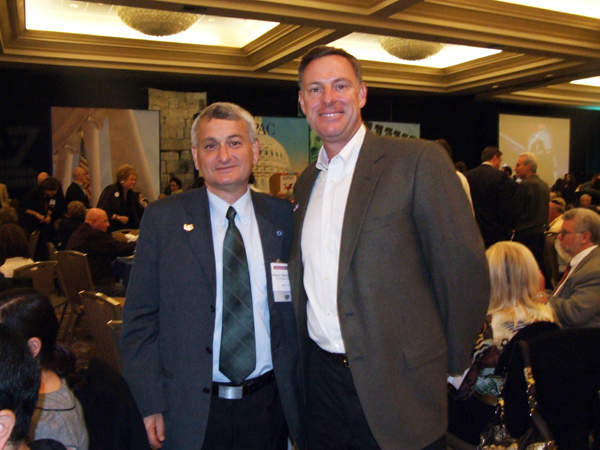
THE POLITICAL GROTTO
My, how San Diego AIPAC has grown!
By Gary Rotto
 SAN DIEGO—Before heading out to the off-the-record AIPAC annual brunch this past Sunday, I reflected on how this organization has changed in San Diego. A room filled with 1,100 people will cause anyone to pause. SAN DIEGO—Before heading out to the off-the-record AIPAC annual brunch this past Sunday, I reflected on how this organization has changed in San Diego. A room filled with 1,100 people will cause anyone to pause.
I’ve been involved in AIPAC for over 25 years dating back to my activism on the University of Texas campus. So when I moved to San Diego, it was natural to seek out the local chapter and become involved. In the late 90’s, I served as the chair of the young leadership program. It was at a time when AIPAC did not have an office in San Diego and was staffed out of Los Angeles. We had an active program with about 40 young professionals involved in our quarterly programs. And it sure seemed like we had more people at various programs than the chapter could attract to the annual brunch. As late as 2002, less than 200 people attended the AIPAC annual event.
 The situation changed with the arrival of Joanna Rose, who still serves as the Area Director. In six short years, the organization has outgrown most hotel facilities in San Diego. The situation changed with the arrival of Joanna Rose, who still serves as the Area Director. In six short years, the organization has outgrown most hotel facilities in San Diego.
Not many if any San Diego organizations – Jewish or secular – can say that over one thousand people attended its event. And along with members of the Jewish community, over 20 elected officials or candidates or staff members – federal, state and local – attended the event.
If you had arrived early you could have talked with Congresswoman Susan Davis (a Jewish community member and longtime AIPAC activist) and then walked over and talked to three congressional candidates in the 52nd district including County School Board President Bob Watkins, Duncan D Hunter (please don’t call him junior), and Mike Lumpkin. During the break in the program, you could have roamed the room and found Congressman Darrel Issa and wandered over to talk to candidate Nick Leibham and his campaign manager. With members of congress, state legislators, and candidates for City Council like Todd Gloria attending, this had become the pre-eminent political event in the Jewish community.
Several years ago, AIPAC was accused of being too right of center in its approach to advocating for the Israel-US relationship. Up until 1993, AIPAC was against negotiations with representatives of the Palestinians. But PLO-Israel mutual letters of recognition, a precursor to the Oslo Accords, changed that stance. Now, AIPAC publicly acknowledges “the suffering of the Palestinians” while maintaining a strong stance against the use terrorism as a tool for change and negotiation. (Note, this signifies that the government based in the West Bank and led by Mahmoud Abbas is a worthy negotiating partner while Hamas should remain on the list of terrorist organizations.) The organization has evolved over time.
I had the pleasure of having San Diego City Council President Scott Peters at our table. Councilmember Peters was sincerely taken by the program as he called afterwards to say it was good to go not just for campaign purposes but to“learn about the American Israel relationship.” As table captain, I invited several friends to join me at the event. A proud liberal, my friend LC attended the event with some trepidation. But she came away impressed with the number and quality of the people who attended and “the amazing and captivating speakers.” Not all of the discussions were about the Middle East as on the way out, we ran into Assemblywoman Lori Saldana, with whom we talked about biomass energy production.
AIPAC committed funding and staff to San Diego with the opening of a local office in 2005. The advantages of having a professional staff, dedicated in terms of both commitment to the issues and well as to the geographic area, are more than evident.


A HERALD IN ZION
Britain's descent into anti-Semitism
By Dorothea Shefer-Vanson
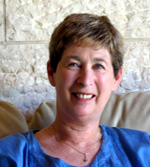 MEVASSERET ZION, Israel—Forty-odd years ago, when I was a student at the LSE, the members of the Jewish Society would go along ‘for a laugh’ to the annual London University Students’ Union debate on the proposal to abolish the State of Israel and establish an Arab state in its stead. No Jewish student took the subject seriously, and the anger displayed by the handful of Arab students (there were no Palestinians then) seemed futile. MEVASSERET ZION, Israel—Forty-odd years ago, when I was a student at the LSE, the members of the Jewish Society would go along ‘for a laugh’ to the annual London University Students’ Union debate on the proposal to abolish the State of Israel and establish an Arab state in its stead. No Jewish student took the subject seriously, and the anger displayed by the handful of Arab students (there were no Palestinians then) seemed futile.
Many things have changed since then. A recent edition of San Diego Jewish World contained Norman Greene’s account of an address given there by well-known American author, Harvard professor and lawyer, Alan Dershowitz. It sent a shiver down my spine.
According to him, ‘the most virulently anti-Semitic, anti-Israel country in Europe is not Poland, the Ukraine or Russia, it is America’s closest ally, England… Many of the people who describe themselves as being pro-Palestinian are virulently anti-Israel, which means that they want to see no Jewish state more than they want to see a Palestinian state.’
Dershowitz claims that anti-Semitism is endemic to English society, dominating the media and the institutions of higher education, its chief perpetrator being the BBC, which ‘spends more time on the supposed humanitarian crisis in Gaza… and virtually no time reporting on the Congo, where millions of people have died.’
England anti-Semitic? What paranoid mind could produce a greater calumny? England is the country which took up arms against Hitler, which gave us and our families refuge, which took in 10,000 children on the Kindertransports and much more besides.
But that was sixty years ago, and the situation is very different today. Since then England has given refuge to a plethora of populations, including many who adhere to the Muslim faith. And while some people claim that Islam is a religion of peace, it cannot be denied that almost all the acts of terrorism that have plagued the western world in recent times have been perpetrated by persons claiming to be acting in the name of Islam.
Anyone who, like me, left England forty years ago and returns to visit from time to time cannot fail to notice the change that has overtaken Britain. A stroll down one of my favourite haunts, Oxford Street, now brings one into contact with a variegated, multi-cultural throng, while the shops and eateries around Marble Arch and the Edgware Road resemble downtown Beirut more than the England I grew up in.
This may well be a good thing. It can’t be bad for a country to emerge from insularity and become more cosmopolitan. It need not necessarily follow, however, that this should bring on an access of anti-Semitism and a wish to annihilate Israel.
We all know that many students from Arab countries attend British universities, as do large numbers of English students who are Muslim by birth. By sheer force of numbers they have managed to get pro-Palestinian and anti-Israel resolutions passed by their student unions and recently almost succeeded in imposing an academic boycott on Israel.
The British man-in-the-street tends to support the underdog. Thus, the misrepresentation by the media of the situation in the Middle East, focusing on the suffering of impoverished Palestinians rather than their leaders’ intransigence or inability to come to the negotiating table, doubtless plays a role in furthering the view that Israel has no right to exist.
When Israel removed its settlers from the Gaza Strip the whole world applauded. Now, however, its civilian population inside Israel proper is bombarded daily by rockets from Gaza. Did that ever get a headline in the Guardian?


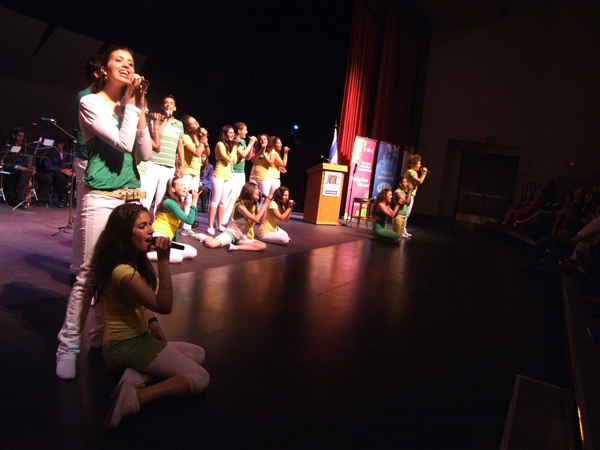
REFLECTIONS
What music performance means
By Sheila Orysiek
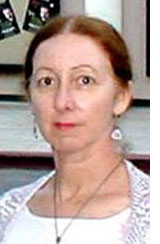 SAN DIEGO—A celebration of Israel’s upcoming sixtieth anniversary and the country’s connection to the Jewish community of San Diego was the impetus for a program featuring a large contingent of young singers and musicians from Afula, Israel. The music and singing were wonderful - upbeat and uplifting; a celebration of youth - of the people on the stage as well as the country from which they came. However, this is not a review of the performance, but a look at what these youngsters represent. SAN DIEGO—A celebration of Israel’s upcoming sixtieth anniversary and the country’s connection to the Jewish community of San Diego was the impetus for a program featuring a large contingent of young singers and musicians from Afula, Israel. The music and singing were wonderful - upbeat and uplifting; a celebration of youth - of the people on the stage as well as the country from which they came. However, this is not a review of the performance, but a look at what these youngsters represent.
If someone not overly familiar with Israel, but quite familiar with how Israel is all too often pictured in the Western press, were asked to describe - generally speaking - what the average Israeli looks like, I doubt that description would fit what was evident on the stage at the Garfield Theatre on March 30. The overall impression garnered from the non-Jewish press is that the average Israeli is male, old, white bearded, has ear locks, a black hat and is swaying back and forth in front of a wall. This is the typical file photo of an Israeli - or even Jews for that matter.
Jews never seem to be portrayed as young; they are born at about 65 years of age and then get older. The accompanying music to this file footage is usually a sad violin that fades off into nothingness. We, as Jews, know this is not true. We are born as infants, move through childhood, and take about the same time as anyone else to go through life’s passages. And most of us are not swaying and mumbling prayers. And even more - half of us are female.
The stage of the Garfield Theatre rocked with youth and vitality but even more just looking at these youngsters one can surmise another reality. To play any of the instruments each of these young people probably started music lessons as a small child. Each represents parents who invested in their children’s education - including music lessons, whether privately or as a community endeavor. They provided the milieu in which this took place. The singers, too, probably had voice lessons and certainly judging by their stage craft, unison of movement and well rehearsed synchronization, spent a good deal of their time rehearsing.
This is quite remarkable when one considers that each of these children, with few exceptions, is the descendent of immigrants - many of whom arrived empty of pocket and after traumatic life altering events whether it was the horrors of Europe or the horrors of Ethiopia - or elsewhere. For the most part each brought only the inner resources with which to begin life anew but they dreamt of a day when their children or grandchildren could take the time for music lessons.
The reality of today is that though the opportunity to take music lessons is there, it is still mightily threatened. Large groups of people still would like to burn these children and/or throw them into the sea. And while their parents pay the high taxes it takes to defend the country and then watch their children enter the armed forces after having spent a good deal of their childhood in bomb shelters - still these parents thought it worthwhile to give them music lessons.
What they didn’t do was teach them about the mythical rewards of putting on a bomb belt to blow up someone else’s children.

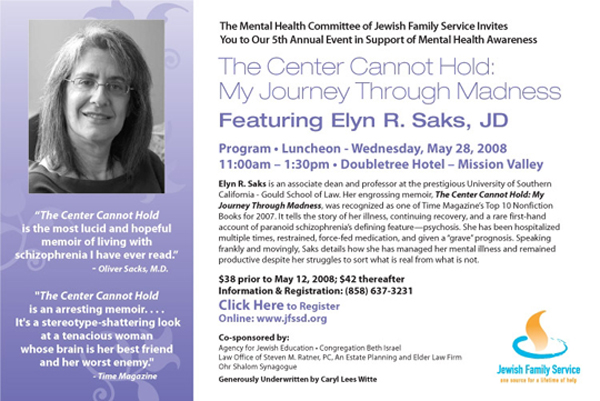
Please click on Jewish Family Service ad above to visit its website

THE JEWISH CITIZEN
Fictional Israeli P.I. fails 'memorable' test
Angel in a Foreign City by Moti Shapira, BookSurge Publishing, ISBN 1-4196-7100-6.
By Donald H. Harrison
 SAN DIEGO—Nancy and I already were fans of the CBS television series NCIS: Naval Criminal Investigative Service and thought it could only get better with the addition to the cast of exchange Mossad agent
Ziva David. But except for David mauling a few English words, and occasional references to the toughness of Israel's Secret Service, the character really doesn't shed any light on Israel. Ziva might as well be Brazilian, which is the nationality of Cote de Pablo, the actress who plays her charmingly. So whereas we still enjoy the series, the "Israeli connection" was a disappointment. We had hoped for much more. SAN DIEGO—Nancy and I already were fans of the CBS television series NCIS: Naval Criminal Investigative Service and thought it could only get better with the addition to the cast of exchange Mossad agent
Ziva David. But except for David mauling a few English words, and occasional references to the toughness of Israel's Secret Service, the character really doesn't shed any light on Israel. Ziva might as well be Brazilian, which is the nationality of Cote de Pablo, the actress who plays her charmingly. So whereas we still enjoy the series, the "Israeli connection" was a disappointment. We had hoped for much more.
I had an analogous reaction to Moti Shapira's
detective novel, Angel in a Foreign City, about a former Israeli detective turned private investigator whose cases take him and his team all over the world, together or separately. In this instance, the P.I., Ethan Eshed, has been called to Mexico City to deal with the kidnaping of the daughter of a multi-millionaire business mogol. There are suspects aplenty—both business competitors and insiders. Eshed's j0b is to sort it all out, and make certain that this little girl—unlike a child taken from the same family in an earlier kidnaping—is returned alive.
Eshed isn't long in Mexico City before the beautiful Elisa Rosario Hernandez throws herself at him—although for the life of me I can't understand why—and she burrows deeper into his affections until at last he is ready to trust her to help him in the case. Characterization is lacking of this woman who becomes his love interest and sexual partner and who, being the "angel" of the title, seemingly wants no more than to prove herself worthy of this foreigner. Without characterization, their love affair seems contrived—the oh-so wishful fantasies of a very lonely man.
Likewise, Eshed manifests few memorable qualities. In his present form, he is not a character who will carry either a series of detective novels nor migrate easily to television or the movies. Like Ziva, there's really nothing all that Israeli about him—he just as easily could have been a smart and egotistical alumni of any big-city police department. Author Shapira has squandered an opportunity to provide a character who can both incorporate and interpret a complex Israeli Jewish personality.
As for the suspense part of the novel—will Eshed act with sufficient precision and alacrity to save the kidnaped girl's life?—here Shapira comes into his own. Described on the book jacket as a former Israeli police man, who still is utilized by the IDF as a counter-terrorism consultant, Shapria is able to provide us with a fast-paced and engrossing conclusion.
I think Shapira has talent, but he shouldn't waste it on novels in which the protagonist is difficult to distinguish from any other P.I. or detective. Chase scenes, passionate sex—yeah, we get that—but where is the substance that will make readers desire on the morning after to invest more time and interest in an enduring literary relationship? Let's hope it is in Shapira's next novel.



SDJA STUDENT QUARTERLY
Anthology's lineup thrills jazz fans
By Harry Doshay
 SAN DIEGO—The jazz club Anthology, located in downtown, is one of the coolest places I have ever been. The ambiance is incomparably hip; when walking in one feels like one has passed from a world of dreariness to a world of hep cats. SAN DIEGO—The jazz club Anthology, located in downtown, is one of the coolest places I have ever been. The ambiance is incomparably hip; when walking in one feels like one has passed from a world of dreariness to a world of hep cats.
The setting of Anthology is highly intimate. You sit hardly a stone's throw away from the performers, and because of this there really is a perceived connection between the artist and you. It transcends a mere auditory experience and becomes something else. You see the sweat on their faces, the expressions of concentration, and become absorbed into it all. The closeness, both physically and emotionally, that is seen at Anthology is an experience that is not likely to be easily rivaled.
The music at Anthology speaks for itself. With acts like Chick Corea, Stanley Clarke, the Pat Metheny Trio, and Chris McPherson, Anthology's lineup always has great musicians ready to entertain. Even the house band consisting of local jazz musicians, can really play. No matter when or who you see at Anthology, you know that you are going to witness something truly awesome. I have yet to see a mediocre show.
Recently, I saw Pat Metheny expecting to see one of the most awesome things I had ever seen. It turns out I underestimated it.
When Pat Metheny took to the stage with what looked like just a regular acoustic guitar, I expected a somewhat boring solo acoustic set before getting to the real music with the band. As he began, I realized I had sold the acoustic set short. Clearly there was a bass somewhere! I searched the stage in vain for most of the first song before realizing that he was, in fact, playing the bassline on his guitar. Not only was he playing complex chord progressions and a melody, he was also playing the bassline. I was blown away by the complexity of it all.
And then things got crazy. After that first song, he proceeded to take out what appeared to be a combo dulcimer/harp/guitar. If the first song sounded like a band, the second one sounded like an entire symphony. With one hand he would fret the chords, and the resonance from playing the other strings would sound off the chords. It was an incredible cavalcade of sound. I was almost disappointed when the other musicians came onstage, thinking that he couldn't possibly be anywhere near as good with other musicians around.
For the third time, I was terribly, terribly wrong.
Pat Meheny was, of course, incredible. The drummer was astonishing. The bassist was among the best I have ever seen. Together they were one of the coolest acts I have had the pleasure of seeing. For one of their songs Pat Metheny plugged his guitar into some strange pedal that gave his guitar a very synthesizer-esque tone. At first it sounded like some typical synthy jam, an awesome one at that, but during a break in the song he tuned down his guitar and they slowed down the entire song. The guitar turned into a terrifying drone. The song was reminiscent of a stay a few thousand miles under water. I could feel myself being pushed downwards by the sheer weight of the sound. This is just one of the many amazing acts that the Jazz club Anthology has brought in since its recent inception.
Pannikin: The Anti-Starbucks in Del Mar
By Michelle Rizzi
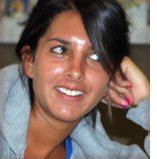 DEL MAR, California—The Pannikin Cafe is the anti-Starbucks. There are only three in San Diego County; not 300. The employees wear their own clothes, not all black uniforms accessorized with a green apron. The food is made fresh; it's not packaged. DEL MAR, California—The Pannikin Cafe is the anti-Starbucks. There are only three in San Diego County; not 300. The employees wear their own clothes, not all black uniforms accessorized with a green apron. The food is made fresh; it's not packaged.
Shawn Holder, the owner, told Lynn Alley, for the San Diego Union-Tribune, that "Other coffee houses are great places to buy coffee, but the Pannikin is a great place to go and drink coffee."
Appealing, right? Pannikin Cafe Mall located in the Del Mar Flowerhill Mall at 2670 Via de la Valle is a cordial restaurant, with a warm, enticing environment. Some have called it the "home away from home." Adorned with works from local artists, couches, window seats, tables, bar stools and old movie theatre chairs, Pannikin offers live music on Friday nights, and is conveniently connected to a book store, Bookworks. Any time of day, you can see familiar faces; people often come to study, meet with friends, or just relax.
If you've been there more than once and have ordered the same things, it's being made the minute you walk in.
Pannikin Cafe, best known for its coffee beverages, offers breakfast, lunch and dessert as well.
For breakfast, you have the choice of a simple pastry, like an almond croissant or the “cravable” coffee cake, or a full-blown meal, such as granola with fruit, milk and yogurt, or steamed eggs. Lunch includes various salads, soups and other dishes, like a quesadilla plate or a sandwich. Desserts include quiches, cakes and pies. A meal (drink and food) can cost anywhere from about $5 to $12.
Pannikin Cafe is open Monday through Thursday, 6 a.m. -10 p.m., Friday and Saturday 7 a.m.-11 p.m. and Sunday from 6 a.m.-9 p.m. There are two other locations: the old Encinitas train station at 510 N. Coast Highway 101 and in La Jolla at 7467 Girard Avenue.
Mesquite Restaurant: A gem in Scripps Ranch
By Alexa Katz
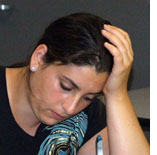 SAN DIEGO—Location! Location! Location! The Mesquite Restaurant is located adjacent to a freeway, across the way from a KFC and behind a gas station on the very edge of the inland community of Scripps Ranch. However, despite the odd venue, this restaurant has become a success. SAN DIEGO—Location! Location! Location! The Mesquite Restaurant is located adjacent to a freeway, across the way from a KFC and behind a gas station on the very edge of the inland community of Scripps Ranch. However, despite the odd venue, this restaurant has become a success.
The restaurant features a blend of excellent South Pacific cuisine, sushi, as well as classic poultry and steak dishes in a casual, but well decorated space.
The name of the restaurant is drawn from the fact that all the entrees are cooked over mesquite wood in a custom made rotisserie and cast iron oven. The fish dishes are excellent, hearty and very fresh. Other popular options are rice bols that come with a variety of fresh vegetables as well as chicken, fish or meat. They can also substitute brown rice for the regular jasmine that is used. The meat dishes are only mediocre, which perhaps can be expected from a place that mainly serves fish.
Each main course is served with a side dish, my favorite being the garlic mashed potatoes which are perfectly seasoned. In addition, you also receive two side sauces. I prefer the perfect sweetness and spiciness of the sweet pepper, but the peanut and green chili garlic are also great.
Here, drink and appetizer orders are taken quickly. The appetizer choices range from Japanese dishes like edamame, miso soup, which is good but not great, gyoza, and tempura, to the slightly more refined wasabi seared tenderloin. If you prefer something a little healthier, they offer a daily soup with no butter or dairy. They also have a sushi menu which boasts a wide array of special house rolls.
Mesquite Restaurant's signature dessert would have to be the plantains, which are fried in a sweet batter and drizzled with chocolate and paired with a coconut Gelato. Tasty and not too heavy, it was a good end to an already great meal.
One of the most fascinating aspects of the restaurant's decor is the far wall which depicts some geometrical silver fish. Slowly swirling projected lights give you the feeling that you are under water. The fish theme can be seen throughout with a plastic blue swordfish hovering over the open kitchen.
Although the food is great, some may find it a bit pricy, with entrees ranging from $15 to $30. The Mesquite Restaurant can be found at 9932 Mercy Road, in the shopping center off the 15.

Please click on the schools' ads to visit their respective websites



SAN DIEGO JEWISH WORLD THE WEEK IN REVIEW
Shoshana Bryen in Washington, D.C. South America's growing terrorist threat
Cynthia Citron in Los Angeles: Production celebrates Albert E, musically
Kathi Diamant in San Diego: My quest to solve a literary mystery
Donald H. Harrison in San Diego: Sha'ar Hanegev seeks rocket-proof school
Rabbi Dow Marmur in Jerusalem: Some advantages to a peace with Syria
Sheila Orysiek in San Diego: Miller's needle: Revenge in a tailor shop
Shoshana Bryen in Washington, D.C.: U.S. must lend support to Colombia as it fights narco-terrorists tied to Hezbollah
Charly Jaffe in San Diego: A teen's guide to Old Ladies
Rabbi Baruch Lederman in San Diego: The honor of service to veterans
Rabbi Dow Marmur in Jerusalem: Anti-Israelism: The new anti-Semitism
Rabbi Leonard Rosenthal in San Diego: On Post Bar/ Bat Mitzvah Letdown
Ira Sharkansky in Jerusalem: Why cynicism abounds in Middle East
And:
From the archives: We reprint from the 1953 Southwestern Jewish Press a trailblazing two-part series by Alice Craig Greene that exposed La Jolla's discriminatory housing policies against Jews
Carol Davis in San Diego: Sondheim's 'Night Music' a Cygnet success
Peter Garas in Canberra, Australia: So maybe Eden wasn't where we thought
Donald H. Harrison in San Diego: Lessons from historical preservationists
Rabbi Dow Marmur in Jerusalem: Israel's confounding aliyah problem
Gary Rotto in San Diego: Puzzling through the divestiture debate
From SDJA Student Quarterly, a publication of San Diego Jewish Academy: Will Bohannon, Jordan Dubin and Charly Jaffe, all in San Diego: SDJA seniors tell presidential choices
And:
Sheila Orysiek: Reluctant Martyr, Chapter One (novel serialization)
Lawrence Baron, PhD in San Diego: No respite from racism: 1936 in the evolution of German racial politics
Rabbi Dow Marmur in Jerusalem: Requiem for the Winograd Report
Sheila Orysiek in San Diego: Advice for Obama: In life and in politics we are judged by the friends we keep
Gary Rotto in San Diego: Obama's 'race' speech showed leadership
From SDJA Student Quarterly, a publication of San Diego Jewish Academy:
Eitan Frysh in San Diego: Litter, mice force snack bar to close
Alexa Katz in San Diego: Students help honor Israel at 60
Rabbi Dow Marmur in Jerusalem: Christian liturgy profoundly impacts Jews
Ira Sharkansky in Jerusalem: U.S. economy, Mideast tensions respond to their own cycles of emotion and excesses
From SDJA Student Quarterly, a publication of San Diego Jewish Academy:
Will Bohannon in San Diego: What is SDJA like for non-Jewish student?
Emma Tuttleman-Kriegler in San Diego: Overseas anti-Semitism stuns student
Cynthia Citron in Los Angeles: Harry Boychick has a raucous bar mitzvah every Sunday in interactive Hayworth play
Peter Garas in Canberra, Australia: Israeli historian's theory on origins of Jewish people has important implications
Donald H. Harrison in San Diego: 'Brain Death Bill,' conversion to Judaism highlights in life, career of Dixon Arnett
J. Zel Lurie in Delray Beach, Florida: Obama's speech on race compares with John Kennedy's talk on his Catholicism
Rabbi Dow Marmur in Jerusalem: The plight of Christians in Arab states
David Strom in San Diego: Chabon's latest is a fast-moving mystery that raises troubling quesitons for Jews
Link to previous editions
< BACK TO TOP
|

 —
—